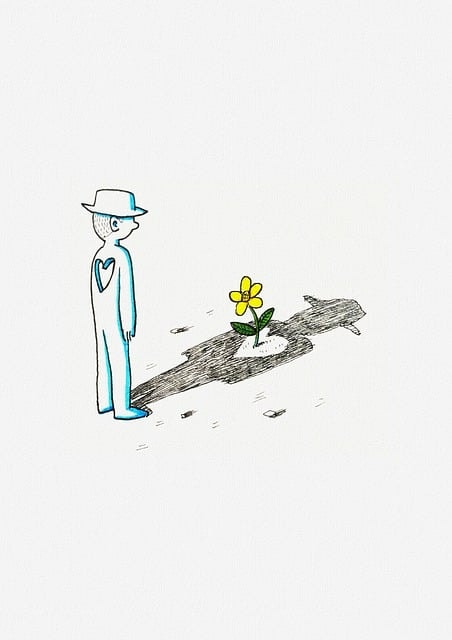Why Do I Feel So Empty? Understanding and Overcoming Emotional Emptiness
Key Takeaways
Emotional emptiness is a hollow, disconnected feeling that can last days, weeks, or months and affects your daily life
Common causes include chronic sleep deprivation, prolonged stress, loneliness, unresolved trauma, and certain mental health conditions like depression or borderline personality disorder
Physical factors such as exhaustion, poor nutrition, and burnout can trigger feelings of emptiness alongside mental and emotional reasons
Recovery involves self care strategies, reconnecting with your core values and meaningful connections, and seeking professional help when emptiness persists
Feeling empty is treatable and not permanent - with proper support and coping strategies, you can restore emotional fulfillment and well being to your life
What Does Feeling Empty Actually Mean?

If you’ve ever found yourself asking “why do I feel so empty?” you’re experiencing one of the most challenging yet common emotional states that millions face worldwide. Emotional emptiness isn’t just feeling sad or disappointed – it’s a profound hollow feeling that seems to echo from within your chest, creating an emotional void that can make daily life feel meaningless and disconnected.
Unlike sadness, which carries emotional weight and can often be traced to specific causes, emptiness feels more like emotional numbness. You might find yourself going through the motions of your adult life without experiencing joy, connection, or purpose. Many people describe it as feeling like they’re watching their own life from the outside, detached from their own feelings and experiences.
The signs of emotional emptiness include feeling disconnected from loved ones, experiencing a sense of meaninglessness in activities you once enjoyed, and struggling with a persistent feeling that something fundamental is missing. This isn’t simply boredom or temporary sadness – it’s a deeper sense that your emotional well being has been compromised.
What’s important to understand is that feeling empty is a real experience that affects your mental health, relationships, and overall quality of life. It’s not a character flaw or something you should simply “get over.” Millions of people worldwide struggle with these empty feelings, and recognizing this as a legitimate concern is the first step toward healing.
Physical Causes Behind Feeling Empty
The connection between our physical and mental health is profound, and understanding how physical factors contribute to emotional emptiness is crucial for recovery. Your body and mind work together in complex ways, and when your physical wellness is compromised, it can directly impact your emotional state and sense of well being.
Sleep Deprivation and Exhaustion
One of the most overlooked physical causes of feeling empty is chronic sleep deprivation. According to the CDC, one in three adults don’t get enough sleep regularly, and this widespread issue has serious implications for mental health. When you don’t get quality sleep consistently, your brain’s ability to produce and regulate crucial neurotransmitters like serotonin and dopamine becomes impaired.
Getting a good night’s sleep isn’t just about feeling rested – it’s essential for emotional regulation and resilience. Without enough sleep, you may find yourself feeling numb to experiences that would normally bring joy or satisfaction. The exhaustion from overwork, caregiving responsibilities, or chronic stress can create a state where you feel detached from your emotions and life experiences.
Sleep deprivation affects your brain’s reward system, making it harder to experience pleasure or motivation. This can manifest as the hollow feeling many describe when asking why they feel so empty. Prioritizing quality sleep and establishing healthy sleep patterns is often one of the most effective ways to begin restoring emotional vitality.
Burnout and Chronic Stress

Burnout has become increasingly common, with studies showing that 22% of U.S. employees experience high levels of burnout. This isn’t just workplace stress – it’s a state of physical, mental, and emotional exhaustion that can leave you feeling completely depleted and empty.
When you’re constantly under prolonged stress, your body produces elevated levels of stress hormones like cortisol. Over time, this chronic activation of your stress response system can lead to emotional numbing as a protective mechanism. Your body essentially shuts down emotionally to preserve energy and cope with the ongoing demands.
The “hustle culture” that particularly affects millennials and Gen Z has normalized chronic stress and overwork, but the mental and emotional toll is significant. Burnout doesn’t just affect your work performance – it can make you feel disconnected from everything that once brought meaning to your life, creating that profound sense of emptiness.
Nutritional and Health Factors
Your brain requires proper nutrition to function optimally and maintain emotional balance. Nutritional deficiencies, particularly in vitamins B12, D, and omega-3 fatty acids, can significantly impact mood and emotional regulation. A well balanced diet isn’t just good for your physical health – it’s essential for mental well being.
Chronic medical conditions, lack of physical movement, and inflammation in the body can all contribute to feelings of emptiness. When your body is struggling with illness or chronic fatigue, it affects your emotional capacity and can create a sense of disconnection from life. Regular physical activity helps release endorphins and other mood-regulating chemicals that are crucial for emotional health.
Emotional and Mental Causes of Emptiness
While physical factors play an important role, many of the deeper causes of emotional emptiness stem from our psychological experiences and the way we process life events. Understanding these emotional reasons can help you identify what might be contributing to your empty feelings.
Loneliness and Social Disconnection

Loneliness has reached epidemic proportions, with over one in three Americans experiencing chronic loneliness. This isn’t just about being alone – it’s about lacking meaningful connections and emotional intimacy with others. When you feel disconnected from loved ones or struggle to form healthy relationships, it can create a profound emotional void.
Social media and digital culture have paradoxically made us more connected yet more isolated than ever. The constant comparison with others’ curated online lives can exacerbate feelings of emptiness and inadequacy. Real emotional intimacy requires vulnerability and authentic connection – something that’s often missing in our increasingly digital world.
The loss of important relationships through breakups, divorce, death of a loved one, or major life changes like relocation can trigger intense feelings of emptiness. These losses don’t just affect your social support system – they can shake your sense of identity and purpose, leaving you feeling adrift and disconnected from yourself.
Unresolved Trauma and Past Experiences
Trauma, particularly from childhood experiences, can create lasting patterns of emotional numbness and disconnection. When someone experiences overwhelming events, the mind often protects itself by shutting down emotionally. This survival mechanism, while protective in the moment, can persist long after the danger has passed.
Complex PTSD and unresolved trauma can manifest as chronic feelings of emptiness because trauma fundamentally disrupts your ability to trust the world and feel safe in your own emotions. Many people who experienced childhood emotional neglect or abuse learn to disconnect from their feelings as a way to cope, but this protective strategy can leave them feeling empty in adult life.
Suppressed emotions and unprocessed grief also contribute to emotional emptiness. When painful feelings are pushed down rather than worked through, they don’t disappear – they create a numbing effect that can block access to all emotions, including joy and love.
Loss of Purpose and Meaning
Viktor Frankl’s work in logotherapy identified the search for meaning as fundamental to human psychological health. When you’re disconnected from your core values or lack clear direction in life, it can create a profound sense of emptiness. This is particularly common during major life transitions or when you feel stuck in unfulfilling circumstances.
Many people experience emptiness when their daily life lacks purpose or when they feel disconnected from what truly matters to them. This might manifest as going through the motions at an unfulfilling job, staying in toxic relationships, or feeling like your life lacks direction or significance.
The emptiness that comes from meaninglessness isn’t just about big life goals – it can also stem from a lack of ongoing learning, creativity, or personal growth in your daily routine.
Boredom and Lack of Fulfillment
While different from clinical emptiness, chronic boredom and lack of stimulation can contribute to feelings of emotional void. When your life lacks variety, challenge, or opportunities for growth, it can create a sense of stagnation that feels empty and unfulfilling.
Routine and monotony, while sometimes necessary, can drain the vitality from life if not balanced with meaningful activities and experiences. The absence of creativity, learning, or engaging pursuits can leave you feeling like something essential is missing.
Mental Health Conditions Associated with Emptiness
Understanding the clinical context of emptiness is important because persistent empty feelings are often symptoms of treatable mental health conditions. While temporary emptiness can be a normal response to life circumstances, chronic emptiness may indicate an underlying mental health condition that requires professional attention.
Depression and Mood Disorders

Depression affects over 280 million people globally, making it one of the most common mental health conditions worldwide. The emptiness experienced in depression differs from typical sadness – it’s characterized by anhedonia, which is the inability to feel pleasure in activities that were once enjoyable.
In depression, many symptoms often accompany emotional emptiness, including persistent fatigue, difficulty with decision making, changes in appetite and sleep patterns, and feelings of worthlessness. The emptiness of depression can make even basic self care feel overwhelming and meaningless.
What makes depression particularly challenging is that the emotional numbness can make it hard to recognize the condition or seek help. When you feel numb, you might not even realize how much your mental health has declined, making professional evaluation crucial for proper diagnosis and treatment.
Borderline Personality Disorder
Chronic emptiness is actually one of the nine diagnostic criteria for borderline personality disorder in the DSM-5. For people with BPD, emptiness isn’t just an occasional feeling – it’s a persistent experience that significantly impacts their sense of identity and relationships.
The emptiness in BPD is often accompanied by identity instability, intense fear of abandonment, and difficulty maintaining stable relationships. This can create a cycle where the emptiness drives impulsive behaviors or self-destructive actions as attempts to feel something or fill the emotional void.
Studies show that among college students, 67% experienced emptiness before engaging in self-harm, highlighting the strong connection between chronic emptiness and risky coping behaviors. This underscores the importance of seeking professional help when emptiness becomes overwhelming or leads to harmful behaviors.
Other Mental Health Conditions
ADHD can contribute to emotional emptiness through emotional dysregulation and difficulty finding sustained interest in activities. The constant struggle to focus and maintain engagement can create a sense of disconnection and unfulfillment.
Anxiety disorders sometimes lead to emotional numbing as a coping mechanism. When anxiety becomes overwhelming, the mind may shut down emotionally to protect itself, leading to a sense of emptiness and detachment.
Other conditions like schizotypal personality disorder can involve social disconnection and emotional flatness that contributes to feelings of emptiness, while panic disorder can impact overall emotional well being and create secondary feelings of emptiness.
How to Stop Feeling Empty: Evidence-Based Strategies

The most important thing to understand about emptiness is that it’s treatable and not permanent. With proper support, self care strategies, and sometimes professional help, you can restore meaning and emotional fulfillment to your life. Recovery involves addressing both the underlying causes and developing healthy coping strategies.
Reconnect With Yourself
The journey back to emotional fullness often begins with reconnecting to your own feelings and inner experience. Mindfulness meditation is one of the most effective ways to rebuild this connection. Even just 10-15 minutes daily of focused attention on your present-moment experience can help you become more aware of your emotions and bodily sensations.
Journaling provides another powerful tool for self-exploration. Writing about your thoughts and feelings, even when they seem empty or unclear, can help you process emotions and gain insights into what might be contributing to your emptiness. Consider longer self explorations through reflective writing to understand patterns in your emotional life.
Spend time reflecting on your core values – what truly matters to you beyond external expectations or pressures. When you’re disconnected from your values, life can feel meaningless. Practicing gratitude regularly, even for small things, can help shift your focus toward positive aspects of your experience and rebuild your capacity for appreciation.
Improve Physical Health
Your physical wellness forms the foundation for emotional well being. Prioritizing sleep hygiene with 7-9 hours of quality sleep nightly is often the most impactful change you can make. Create a consistent bedtime routine, limit screen time before bed, and ensure your sleeping environment supports good rest.
Regular physical exercise is one of the most effective natural treatments for empty feelings. Exercise releases endorphins and other mood-regulating neurotransmitters that can help restore emotional vitality. You don’t need intense workouts – even daily walks or gentle movement therapy can make a significant difference.
Maintaining balanced nutrition supports your brain’s ability to produce the chemicals necessary for emotional regulation. Focus on a well balanced diet rich in omega-3 fatty acids, complex carbohydrates, and essential vitamins. Consider consulting with a healthcare provider if you suspect nutritional deficiencies might be contributing to your emptiness.
Deep breathing exercises and stress management techniques help regulate your nervous system and can provide immediate relief from feelings of disconnection. Learning to manage stress proactively prevents the buildup of stress hormones that can contribute to emotional numbing.
Build Meaningful Connections

Human connection is fundamental to emotional well being, and rebuilding meaningful connections is often crucial for overcoming emptiness. Start by reaching out to trusted friends and family members, even when it feels difficult. Vulnerability in sharing your struggles can actually deepen relationships and provide the support you need.
Practice active listening and work on developing emotional intimacy in your existing relationships. This means being present, showing genuine interest in others’ experiences, and sharing your own authentic self. Quality connections matter more than quantity – focus on nurturing a few deep relationships rather than maintaining many superficial ones.
Consider joining support groups or communities centered around shared interests or experiences. This can provide both social support and a sense of belonging. Volunteering for causes you care about can also create meaningful connections while contributing to something larger than yourself.
Be mindful of toxic relationships that drain your energy and contribute to emptiness. Setting healthy boundaries and distancing yourself from relationships that consistently leave you feeling worse is essential for your emotional health.
Find Purpose and Meaning
Rebuilding a sense of purpose often involves exploring activities that align with your values and bring a sense of accomplishment or contribution. This might involve career changes if your current work lacks fulfillment, or it might mean finding meaning through hobbies, creative pursuits, or volunteer activities.
Set achievable goals that feel personally meaningful rather than imposed by external expectations. These don’t have to be major life goals – they can be small, daily intentions that give structure and purpose to your routine. The key is choosing goals that reflect your authentic interests and values.
Engage in ongoing learning and creative expression. Taking up art therapy, music therapy, or other creative outlets can help you reconnect with your emotional self and find new sources of meaning. Learning new skills or exploring subjects that interest you can reignite curiosity and engagement with life.
Consider exploring zen buddhist philosophies or other wisdom traditions that offer frameworks for finding meaning and peace even in the midst of emptiness. Many people find that spiritual or philosophical practices provide helpful perspectives on dealing with life’s inevitable challenges.
When to Seek Professional Help
While self-help strategies can be very effective, it’s important to recognize when professional support is needed. If your feelings of emptiness persist for weeks or months despite your efforts, significantly interfere with your daily life, or are accompanied by thoughts of self-harm or suicide, it’s crucial to seek support from a mental health professional.
Red flags that indicate immediate professional help is needed include: persistent thoughts of death or suicide, engaging in self-destructive behaviors, inability to function in work or relationships, or feeling completely hopeless about the future. If you’re experiencing any of these, please reach out to a crisis helpline or emergency services immediately.
Various types of therapy have proven effective for treating emptiness, depending on the underlying causes. Cognitive Behavioral Therapy (CBT) can help identify and change thought patterns that contribute to emptiness, while Dialectical Behavior Therapy (DBT) is particularly effective for those with borderline personality disorder or chronic emotional instability.
Psychodynamic therapy can help address unresolved trauma and past experiences that contribute to emptiness, while existential therapy focuses specifically on issues of meaning and purpose. Many therapists integrate multiple approaches to create personalized treatment plans.
Online therapy and teletherapy have made mental health support more accessible than ever. If traditional in-person therapy isn’t available or accessible, these options can provide professional help from the comfort of your home.
If underlying mental health conditions like depression or anxiety are contributing to your emptiness, a medication evaluation with a psychiatrist might be helpful. While medication alone rarely resolves emptiness, it can address underlying chemical imbalances that make recovery more difficult.
FAQ
How long do feelings of emptiness typically last?
The duration of emptiness varies greatly depending on the underlying causes. Temporary emptiness from life changes or stress might last days to weeks, while chronic emptiness related to mental health conditions like depression or BPD can persist for months or years without treatment. With appropriate intervention, most people see improvement within several weeks to months.
Can feeling empty be a sign of a serious mental health condition?
Yes, persistent emptiness can indicate serious mental health conditions including major depression, borderline personality disorder, PTSD, or other mood disorders. If emptiness lasts more than two weeks, significantly impacts your daily functioning, or is accompanied by other concerning symptoms, it’s important to consult with a mental health professional for proper evaluation.
Is it possible to feel empty even when your life seems good on paper?
Absolutely. Emptiness isn’t always related to external circumstances. You can have a successful career, loving relationships, and financial stability while still experiencing profound emotional emptiness. This often indicates that the emptiness stems from internal factors like disconnection from your values, unresolved trauma, or underlying mental health conditions rather than life circumstances.
What’s the difference between feeling empty and feeling depressed?
While emptiness and depression often overlap, they’re distinct experiences. Depression typically includes persistent sadness, hopelessness, and loss of interest in activities, while emptiness is more characterized by numbness and a sense of emotional void. However, emptiness can be a symptom of depression, and many people experience both simultaneously.
Can medication help with chronic feelings of emptiness?
While there’s no specific medication for emptiness itself, medications can be helpful when emptiness is related to underlying conditions like depression, anxiety, or other mental health disorders. Antidepressants may help restore emotional capacity, though they work best when combined with therapy and lifestyle changes. Some people report that certain medications can initially increase emotional numbness, so close monitoring with a psychiatrist is important.


